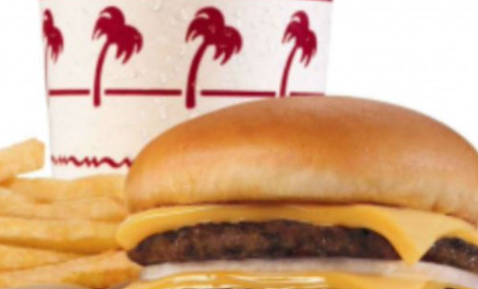Small business are closing up in increasing numbers every month now thanks to Democrat policies.
California’s new $20 minimum wage for fast food workers is proving to be a heavy burden for franchise owners, who are now making tough decisions to stay afloat. Many are cutting hours, reducing staff, and even stepping in to work shifts themselves.
Lawrence Cheng, who operates several Wendy’s locations in Southern California, has had to make significant changes. At his Fountain Valley location in Orange County, he reduced the number of afternoon shift employees from over a dozen to just seven. To cope with the higher costs and reduced hours, Cheng finds himself filling in the gaps. “I schedule one less person, and then I come in for that time that I didn’t schedule and I work that hour,” Cheng told the Associated Press.
A recent report from the Associated Press detailed concerns from several California fast food restaurant owners who say they’ve been forced to reduce hours and hike food prices after the minimum wage increased.https://t.co/777OG0ndDA
— reason (@reason) July 13, 2024
Cheng’s story is not unique. Scott Rodrick, who owned a McDonald’s at Stonestown Galleria near San Francisco, recently shut down his restaurant, citing economic challenges such as the wage hike. “The unprecedented changes to the economic landscape of California, coupled with a host of ill-timed legislative mandates, greatly narrowed the restaurant’s path to extending its tenure into a new term,” Rodrick explained to Fox News Digital.
Rodrick’s McDonald’s is one of several fast food locations that have closed since the wage increase, including Red Lobster, Arby’s, Rubio’s Coastal Grill, and Fosters Freeze.
Juancarlos Chacon, who runs nine Jersey Mike’s locations in the Los Angeles area, is also feeling the pressure. He has had to raise prices and cut back on morning and evening staff to focus on busier lunch hours. “I’ve been in the business for 25 years and two different brands and I never had to increase the amount of pricing that I did this past time in April,” Chacon told the Associated Press.
California’s decline under a Democratic monopoly on power is not without its opposition. One of the most important opponents happens to be the best fast-food chain in the country.
In-N-Out Burger is spending at least $500,000 in support of Proposition 36, the fruit of the labors… pic.twitter.com/jDjj1pd4gj— Mike Netter (@nettermike) July 13, 2024
Customers are also affected, as they adjust their orders to cope with higher prices. California’s $20 minimum wage for fast food workers is significantly higher than the $16 average for other industries in the state and more than double the federal minimum wage of $7.25.
Key Points:
- Operational Struggles: California’s $20 minimum wage for fast food workers forces franchise owners to cut hours, reduce jobs, and fill in shifts themselves.
- Owner Insights: Lawrence Cheng of Wendy’s and Juancarlos Chacon of Jersey Mike’s share their challenges in managing higher costs and staffing.
- Business Closures: Economic pressures from the wage hike have led to the closure of several fast food locations, including McDonald’s and Red Lobster.
- Price Increases: Franchise owners have had to raise prices significantly, with some noting unprecedented price hikes.
- Customer Impact: Higher prices are leading customers to modify their orders, reflecting the broader economic impact of the wage increase.
Kirk Volo – Reprinted with permission of Whatfinger News



